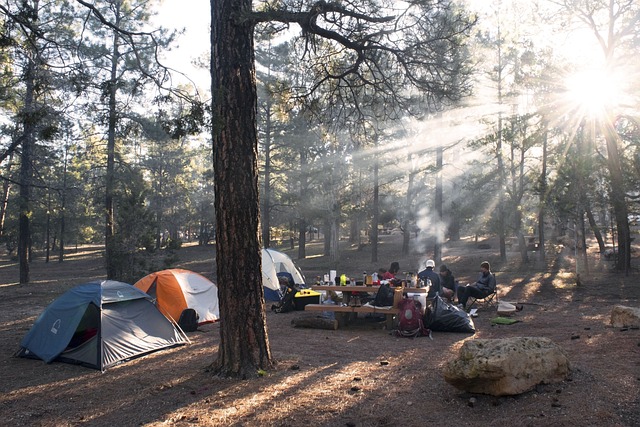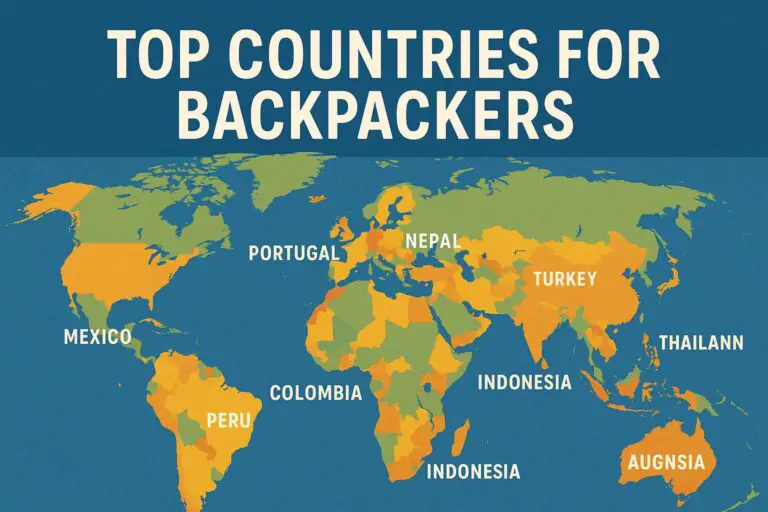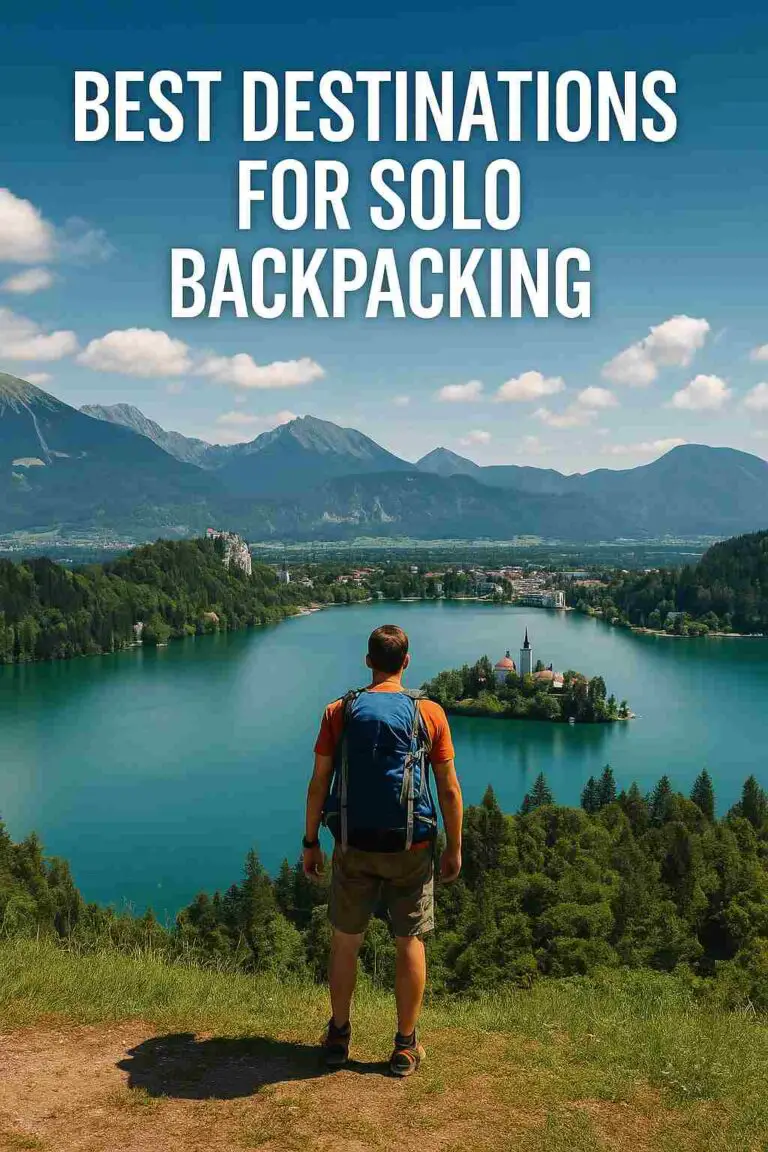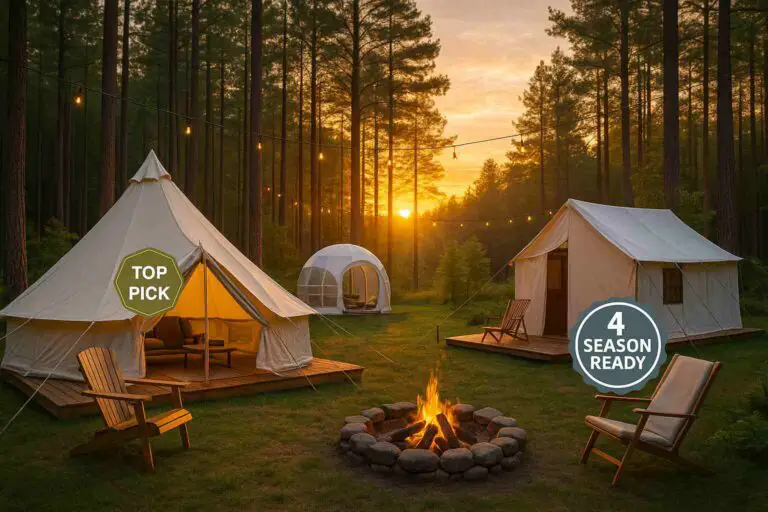Camping is a popular outdoor activity that involves spending time in nature while sleeping in a tent or other temporary shelter. Camping provides an opportunity to disconnect from technology and city life and connect with nature. It is a great way to relax, recharge, and make memories with family and friends. However, for beginners, camping can be overwhelming, as there are many details to consider. That’s why I wrote this beginner’s guide to camping.
In this guide, I’ll cover everything a beginner needs to know, including how to plan for a camping trip, what gear to bring, how to set up camp, and tips for a safe and comfortable stay. Whether you’re a first-time camper or someone looking to refresh your camping skills, this guide will provide you with the necessary knowledge to enjoy your camping experience.
Planning for Your Camping Trip
Before embarking on your camping trip, it’s essential to plan and prepare. Here are some tips for planning your camping trip:
Choosing the right camping gear
Having the right gear can make or break your camping experience. Here are some essential items you’ll need:
- Tent: Make sure to choose a tent that’s appropriate for the number of people in your group.
- Sleeping bags: Choose sleeping bags that are rated for the temperatures you’ll encounter.
- Camping stove: A camping stove is essential for cooking food and boiling water.
- Cooler: A cooler will keep your food and drinks cold.
- First aid kit: A first aid kit is crucial for addressing minor injuries or illnesses.
Selecting the best campsite
Choosing the right campsite can make your camping trip more enjoyable. Here are some factors to consider:
- Location: Choose a location that’s easy to access and has the amenities you need.
- Amenities: Look for a campsite that has toilets, water, and fire pits.
- Rules and regulations: Make sure you’re aware of the campsite’s rules and regulations.
Creating a packing checklist
A packing checklist will ensure you don’t forget anything essential. Here are some items to include:
- Clothing and footwear: Pack appropriate clothing and footwear for the weather and terrain.
- Food and water: Bring enough food and water for the duration of your trip.
- Personal items: Pack toiletries, medication, and other personal items.
- Camping accessories: Don’t forget items like flashlights, bug spray, and sunscreen.
By planning and preparing ahead of time, you’ll be well-equipped for a successful camping trip.
Preparing for Your Camping Trip
Once you have planned your camping trip and gathered all the necessary gear, it’s time to prepare for your adventure. Here are some tips for preparing for your camping trip:
- Setting up the tent: Before leaving for your trip, set up your tent in your backyard or a nearby park to ensure that you know how to assemble it correctly. This way, you can make any necessary repairs or adjustments beforehand, so you’re not struggling when you arrive at your campsite.
- Building a campfire: If you plan to build a campfire, make sure you know how to do it safely. Check the campsite regulations to see if campfires are allowed, and if so, where you can build them. Always have a bucket of water or sand nearby to extinguish the fire, and make sure the fire is completely out before leaving the campsite.
- Food preparation and storage: Plan your meals and bring the necessary cooking equipment, such as a camping stove or grill. Store your food in sealed containers or a cooler to keep it fresh and prevent animals from getting into it. Remember to bring enough food for the duration of your trip, including snacks and non-perishable items.
You’ll also feel more confident and less stressed when you arrive at your campsite.
Camping Tips for a Comfortable and Safe Stay
To make your camping trip comfortable and safe, here are 5 essential tips to follow:
- Sleeping tips: To ensure a good night’s sleep, make sure to bring a comfortable sleeping bag that is rated for the temperatures you’ll encounter. Also, bring a sleeping pad or air mattress to insulate you from the cold ground. Finally, choose a level and dry spot to set up your tent, and avoid areas with rocks, roots, or other sharp objects that can make sleeping uncomfortable.
- Hygiene and sanitation: Maintain good personal hygiene by bringing toiletries and hand sanitizer. Always wash your hands before handling food and after using the restroom. Use the campsite facilities if available, and if not, follow Leave No Trace principles and pack out all your trash and waste.
- Wildlife safety: To stay safe around wildlife, make sure to keep a safe distance and avoid feeding them. Store your food in sealed containers or a bear-resistant container and keep it away from your tent. If you encounter a wild animal, make noise and back away slowly, giving the animal plenty of space.
- Fire safety: Always follow campsite regulations when building a fire. Use only designated fire rings or pits, and keep the fire small. Never leave a fire unattended, and always fully extinguish it before leaving the campsite.
- Weather preparedness: Be prepared for changing weather conditions by bringing appropriate clothing layers and rain gear. Always check the weather forecast before leaving and make sure to have a backup plan in case of severe weather.
Remember to always be respectful of nature and Leave No Trace to help preserve our wilderness areas for future generations.
Activities and Entertainment
Camping provides opportunities for many outdoor activities and entertainment. Here are 4 popular activities you can do while camping:
- Hiking and exploring: Hiking is one of the best ways to explore the natural beauty of your campsite. Bring a map and compass, and stick to designated trails. Always practice safety precautions such as bringing plenty of water, wearing appropriate footwear, and letting someone know where you’re going and when you plan to return.
- Water activities: Depending on the location of your campsite, you may have the opportunity to swim, boat, or fish. Always practice water safety, wear life jackets, and follow all rules and regulations.
- Campsite activities: You can also have fun at your campsite by playing games such as frisbee, horseshoes, or cards. You can also go bird watching or stargazing, or simply relax and enjoy the scenery.
- Nature observation: Camping is a great way to observe wildlife and learn about nature. Bring a field guide and binoculars to identify birds, plants, and animals.
Leave the area as you found it, and respect the natural environment and wildlife.
Leave No Trace Principles
Leave No Trace is an important set of principles that guide outdoor ethics and practices to minimize human impact on the environment. Here are the seven Leave No Trace principles:
- Plan ahead and prepare: Research your destination and plan your trip accordingly. Make sure to bring the necessary equipment and supplies, and know the rules and regulations of the area you’ll be visiting.
- Travel and camp on durable surfaces: Stick to established trails and campsites, and avoid trampling on vegetation. Use established fire rings or pits if available.
- Dispose of waste properly: Pack out all trash and waste, including toilet paper and hygiene products. Use designated restroom facilities if available, and if not, dig a small hole at least 200 feet from water sources, campsites, and trails.
- Leave what you find: Don’t disturb or remove plants, rocks, or artifacts. Leave natural and cultural features as you found them for others to enjoy.
- Minimize campfire impact: Use established fire rings or pits if available, and keep the fire small. Burn only small sticks and twigs, and never leave a fire unattended. Make sure to fully extinguish the fire with water before leaving the campsite.
- Respect wildlife: Observe wildlife from a safe distance and never approach or feed them. Store your food in bear-resistant containers or sealed containers and keep it away from your tent. Avoid camping or hiking during dawn and dusk when animals are most active.
- Be considerate of other visitors: Respect other campers and hikers by keeping noise levels down, sticking to designated trails, and keeping pets under control.
By following Leave No Trace principles, you can help protect our natural areas and ensure that future generations can enjoy them too.
Conclusion
In conclusion, camping can be a fun and rewarding outdoor activity for anyone, and it’s a great way to connect with nature and spend time with family and friends. By following this beginner’s guide to camping, you’ll be well-equipped for a safe and comfortable camping trip.
Remember to plan and prepare ahead of time by choosing the right gear, selecting the best campsite, and creating a packing checklist. When preparing for your trip, make sure to set up your tent, build a campfire safely, and store your food properly.
During your camping trip, follow the Leave No Trace principles, and practice good hygiene and safety measures. Be prepared for changing weather conditions and enjoy outdoor activities and entertainment while respecting nature and wildlife.
Overall, camping can provide a much-needed break from everyday life, and it can help you build memories and connect with nature. So go ahead and plan your first camping trip – you won’t regret it!








